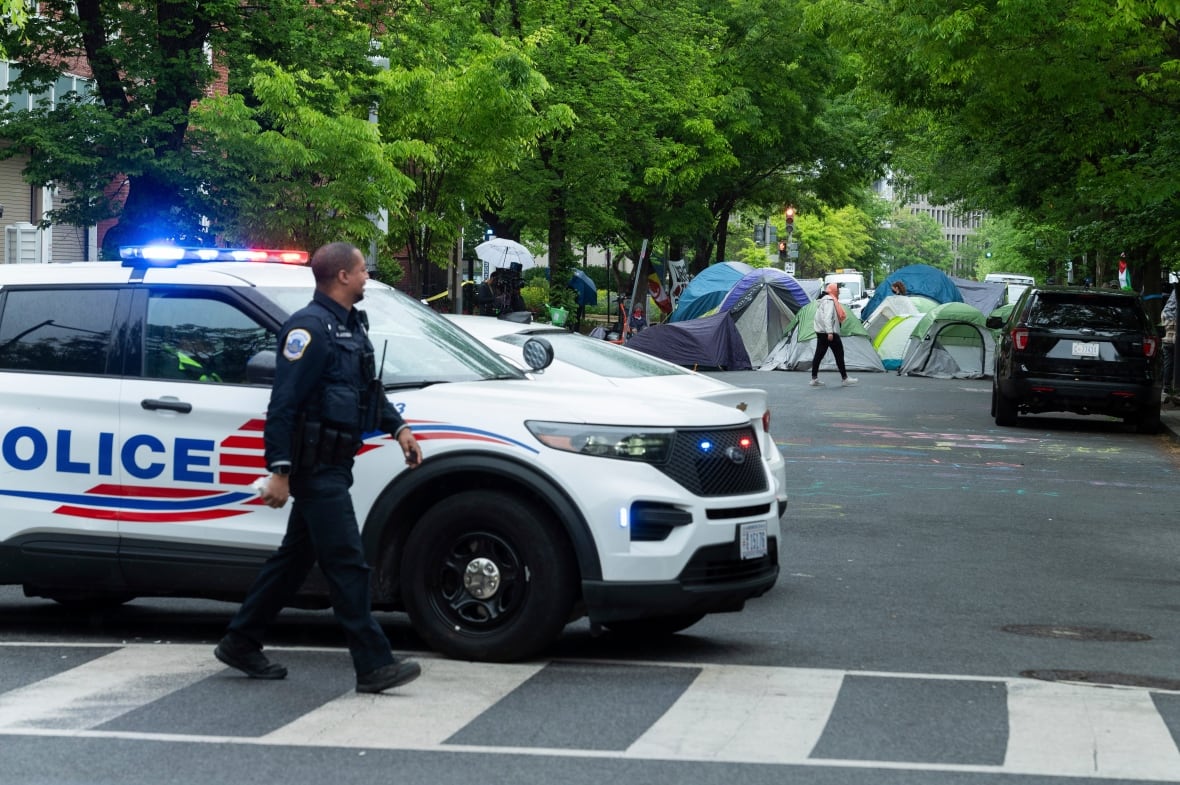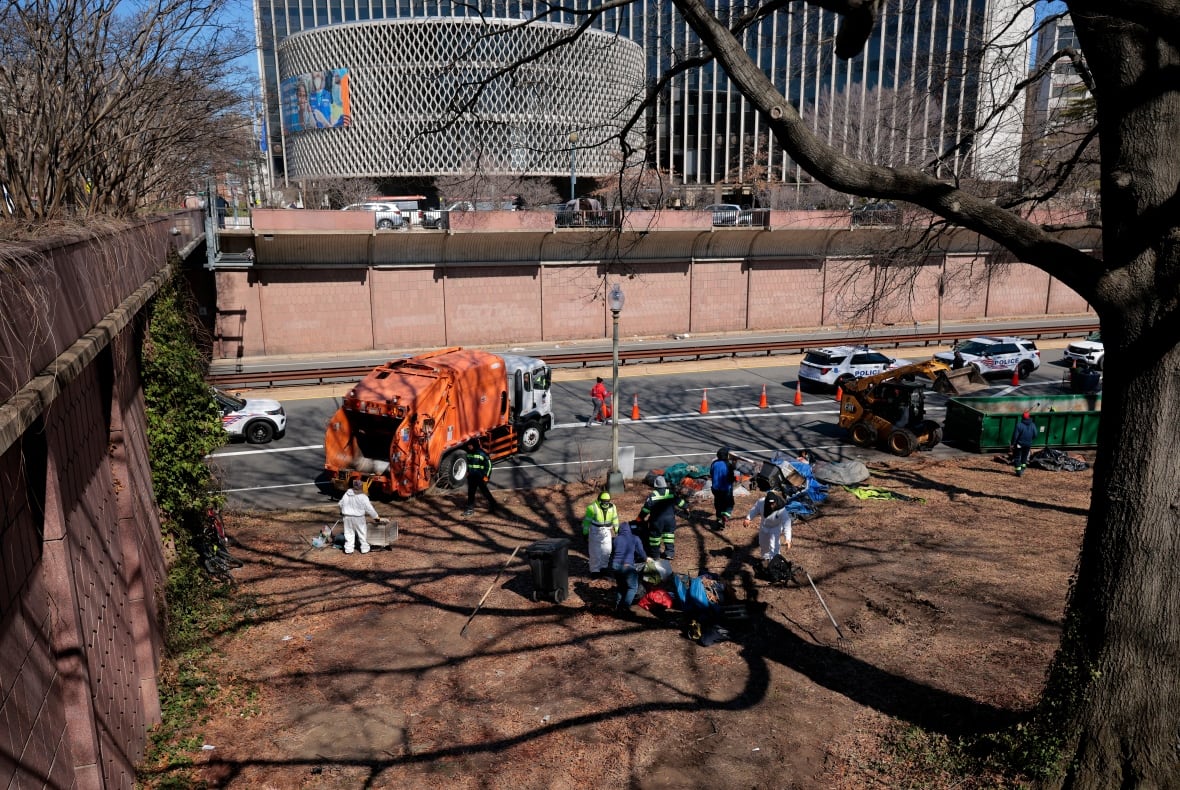Trump's D.C. police takeover could face crucial test in a month
Published: 2025-08-12 15:55:59 | Views: 13
U.S. President Donald Trump has repeatedly threatened to put Washington, D.C., under full federal control to reduce crime, even as city officials stressed crime is already falling.
On Monday, Trump announced two main fronts in that response from his administration: the federalization of the city's police force as well as the deployment of National Guard troops. While Trump does have some authority over the capital city's police force and National Guard soldiers, a full federal takeover would likely be blocked in court.
Here's a closer look.
What does the Constitution say about D.C.?
The U.S. Constitution, ratified in 1787, provided for the creation of a federal capital district to serve as the permanent seat of the government.
The constitution made clear that Congress has complete legislative authority over the district. But Congress has historically delegated at least some of the day-to-day work of municipal government to other entities.
How is D.C. governed?
A federal law passed by Congress in 1973, known as the Home Rule Act, allowed city residents to elect a mayor and council, who have some autonomy to pass their own laws.
Congress still has budgetary oversight over D.C., however, and can overturn local legislation. The federal body did that most recently in 2023, voting to overturn changes to Washington's laws that lowered penalties for some crimes.
The D.C. National Guard
Trump has broad control over the 2,700 soldiers and airmen in the D.C. National Guard. They report directly to the president, unlike counterparts in other states and territories.
Trump said that 800 National Guard members would be deployed, but the Army later said just 100 to 200 of the troops will be on the city's streets at any given time.
"Their duties will include an array of tasks from administrative, logistics and physical presence in support of law enforcement," according to a statement from the Army, to which the District of Columbia National Guard directed all questions.
About 500 federal law enforcement officers are being assigned to patrols in Washington, including from the FBI; Bureau of Alcohol, Tobacco, Firearms and Explosives; Drug Enforcement Administration; Immigration and Customs Enforcement (ICE); and the Marshals Service.
According to the Army, Guard troops will be deployed under Title 32, or "federal-state status" authority. That means the troops can conduct law enforcement activities on the streets of the nation's capital — though, at the moment, that doesn't appear to be the plan.
Asked on Fox News on Monday night whether the troops would be detaining Americans, Secretary of Defence Pete Hegseth said "they're not going to be involved in law enforcement functions," before adding, "I will have their back to ensure they can take the necessary action to protect citizens of D.C. and to protect themselves."
He said the troops could detain people and then hand them over to law enforcement, as was done earlier this year in Los Angeles. However, California's governor and Los Angeles officials argued that federal deployment was unnecessary given the relatively small scope of anti-immigration protests, and this week a federal judge is holding an important trial on whether the militarization there was lawful.
The timeline for the D.C. troop deployment is vaguely defined. According to Trump's directive, National Guard troops will remain deployed until the president determines "that conditions of law and order have been restored."
After Trump's supporters stormed the Capitol on Jan. 6, 2021, to protest the results of the 2020 presidential election, he never deployed the Guard. He falsely claimed that Nancy Pelosi, then speaker of the House, rejected deploying National Guard troops to help curb the violence, and in later months Trump said he signed an order for 20,000 Guard troops to go to the Capitol in the runup to the event, a claim rejected by his defence secretary at the time, Chris Miller.
It was later revealed that it was vice-president Mike Pence, while being scurried to safety at the Capitol, who eventually called on Miller and the Pentagon to bring in those reinforcements.
The Home Rule Act and D.C. law enforcement
Washington Mayor Muriel Bowser has authority over the city's Metropolitan Police Department. But the Home Rule Act allows a U.S. president to take control of the MPD for federal purposes during emergencies if "special conditions of an emergency nature exist."
Trump invoked this part of the Home Rule Act on Monday, but a presidential takeover is limited to 30 days, unless Congress votes to extend it through a joint resolution.

Repealing the Home Rule Act would require 60 votes in the U.S. Senate, where Trump's Republican Party has a 53-47 advantage. Democrats have been supportive of home rule for D.C. — some are even in support of the district being granted statehood — and are not expected to cross party lines.
But Trump has broad authority to reallocate FBI personnel. For example, FBI agents around the country have been given temporary assignments recently to help with immigration enforcement.
Trump said in an executive order that there is a "crime emergency" in the city that necessitates federal management of the police department. The administration has seized on an alleged assault of a person employed in Elon Musk's Department of Government Efficiency, for which teen assailants were arrested.
A "crime emergency" is an arguable contention — while the city, along with several others in the U.S., saw homicide rates drop to pre-pandemic levels in 2024 after a spike, Washington's per capita homicide rate was among the five highest in the country in both 2023 and 2024.
But the 2023 spike in homicides — 274 were recorded in all — is lower than from 1988 to 1996, when a crack cocaine epidemic helped fuel a homicide total of between 360 to 480 killings each year, when Washington's population was comparable or even smaller than it has been in recent years.
Can Trump evict the D.C. homeless?
Trump has said homeless people must move out of Washington, without offering specifics of a plan to accomplish this.
"The Homeless have to move out, IMMEDIATELY. We will give you places to stay, but FAR from the Capital," he posted on Truth Social.

The federal government owns much of Washington's parkland, so the Trump administration has legal authority to clear homeless encampments in those areas — as President Joe Biden did while in office, supported by Bowser.
As well, a 2024 Supreme Court decision gave localities broad authority to enforce ordinances preventing homelessness. But the federal government cannot force people to move out of the city because they lack shelter, legal experts told Reuters.
Source link






